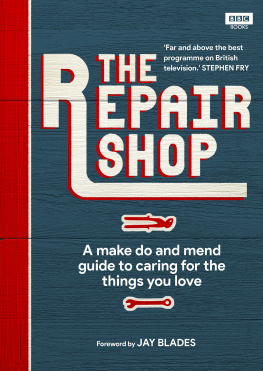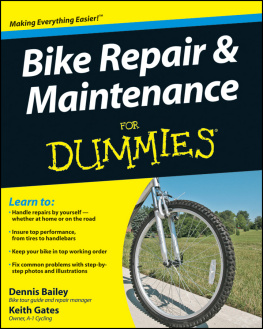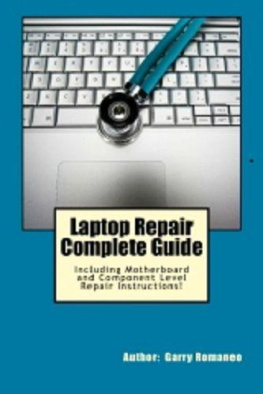Contents
Guide


Praise for Repair Revolution
Its heartening to see the rise in popularity of Repair Cafes, to witness communities gathering to collectively build resilience, share technical skills, honor value, and celebrate creativity. I hope communities can use this book to continue building support for a repair revolution.
Katrina Rodabaugh, author of Mending Matters
Fixing something is one of lifes great pleasures. Repair Revolution is an inspirational yet practical primer on how to build and strengthen communities, one reclaimed, repaired, or restored object at a time.
David Malki!, author of Wondermark
The impulse to repair is present in every part of our lives. This book tells the important story of the people leading the repair movement.
Kyle Wiens, CEO of iFixit
A gold mine of inspiring stories, full of fascinating information and insights the what, who, how, where, and, crucially, why of the growing repair movement. If you want to kick-start the repair revolution in your community, this book is a must-read.
Catherine Weetman, host of the Circular Economy podcast and cofounder of Rethink Global
This book delivers good news at two important levels. It chronicles the growing worldwide repair movement (sibling to the Maker movement) in abundant, inviting detail. And it inspires and instructs the actual fixing of things in your life.
Stewart Brand, creator of the Whole Earth Catalog and author of the forthcoming book Maintenance
Encountering a chair on the street one day that just needed a bit of glue, my fixing self said, Someone has to do something about this! Taking a look around, I discovered an upwelling of energized engagement in repair in every quarter folks organizing to help neighbors with fixes, academics conceptualizing maintenance and repair, thought leaders rearticulating the shape of the economy, activists rattling the cage in the political arena and it was happening across the globe. Well-researched, articulate, readable, comprehensive, and compelling, Repair Revolution is a very important contribution to the international repair movement and offers extensive resources for taking action.
Vita Wells, founder of the Culture of Repair Project
Repair Revolution appears at a critical time, as the USA must reconsider its commitment to recycling. Repair and reuse are the highest forms of recycling, as they retain the embodied energy, labor, and materials of valuable finished goods rather than raw materials. Repair and reuse enterprises provide well-paying jobs to formerly unskilled workers, reduce the waste stream, and provide good merchandise to low-income communities. Repair Revolution presents the what, who, why, and how-to of bringing repair and reuse to every town in the USA. It describes the origins, motivation, culture, and decentralized structure of this sector, whose emergence today is as important as the initial recycling revolution of the late 1960s.
Neil Seldman, president of the Institute for Local Self-Reliance



| New World Library 14 Pamaron Way Novato, California 94949 |
Copyright 2020 by John Wackman and Elizabeth Knight
All rights reserved. This book may not be reproduced in whole or in part, stored in a retrieval system, or transmitted in any form or by any means electronic, mechanical, or other without written permission from the publisher, except by a reviewer, who may quote brief passages in a review.
Text design by Tona Pearce Myers
Right to Repair fist logo on cover and interior courtesy of iFixit, the free repair guide. ifixit.com
Credits for photographs and illustrations can be found on pages 28587.
Library of Congress Cataloging-in-Publication data is available.
First printing, May 2020
ISBN 978-1-60868-660-5
Ebook ISBN 978-1-60868-661-2
Printed in Canada on 100% postconsumer-waste recycled paper

| New World Library is proud to be a Gold Certified Environmentally Responsible Publisher. Publisher certification awarded by Green Press Initiative. |
10987654321
Contents


Let us raise a standard to which the Wise and Honest can repair.
George Washington, 1787
U sed to be, every town had its repair shops. Everyone knew where to go when they needed something fixed. That know-how was often close at hand, practiced by parents, grandparents, aunts, uncles, neighbors, or a local fix-it man. We can call this a remnant of the Great Depression, of course, but its roots stretch back to Benjamin Franklins Poor Richard and the tradition of Yankee thrift.
How has our society changed? The immediate answer, almost always, is that we no longer get things repaired because ours has become a throwaway culture. The economic explanation for this is that since World War II, the world has embraced the materials economy, that is to say, a wasteful, rather than regenerative, use of precious resources. As the axiom coined by Twitter cofounder Evan Williams puts it, The argument cant be made that this is sustainable.
But if there is a Repair Cafe or Fixit Clinic or Tool Library in your town, you have a different answer. The place to get something fixed is at the library or a church or your town hall or community center. The concept couldnt be simpler: whatever you call it, wherever it is held, a community repair event invites you to bring a beloved but broken item to be repaired for free, by an expert who is also your neighbor.
Theres one catch. This is not a drop-off service. You bring your item and stay with it during the repair process. You sit down and describe what its not doing that its supposed to be doing, when it stopped working, and where you think the defect might be. This is not a monetary transaction its an interpersonal transaction.
The consumer economy is powerful. The growing repair culture is a countervailing force: community initiatives that are creative, socially vibrant platforms for building awareness about the larger challenges facing our planet.
There is something about the act of repairing that motivates and satisfies deeply felt parts of our nature. We can trace this insight back to Aristotle: is being able to enact ones knowledge, to share what you know. The act of repairing involves troubleshooting, which to many people is an irresistible proposition.
Next page
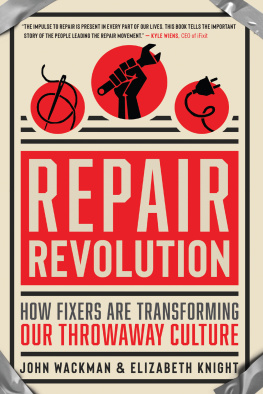

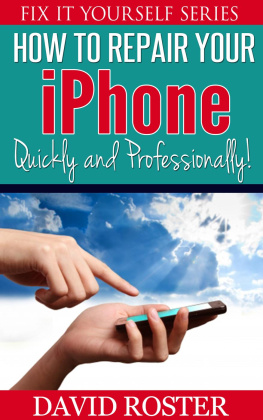
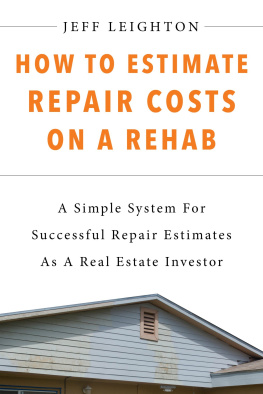
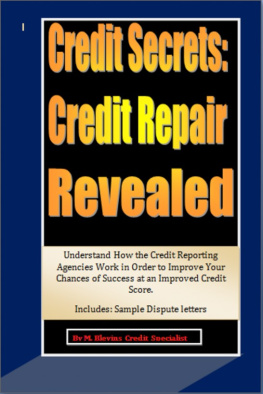
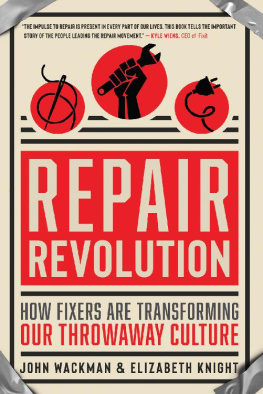
![Shanks - Essential bicycle maintenance & repair: [step-by-step instructions to maintain and repair your road bike]](/uploads/posts/book/235248/thumbs/shanks-essential-bicycle-maintenance-repair.jpg)
